China Cuts Bank Reserves, Boosts Property Lending to Aid Economy
By Rediff Money Desk, BANGKOK Jan 24, 2024 16:18
China's central bank has cut reserve requirements and plans to boost lending to property developers in a bid to support the slowing economy. This comes as the country grapples with a weak property market and a slowing post-pandemic recovery.
Bangkok, Jan 24 (AP) China's central bank said Wednesday it will cut the ratio of reserves banks must hold as part of a slew of measures to support the slowing economy.
The announcement by the People's Bank of China prompted a surge in share prices, with Hong Kong's benchmark jumping 3.6%.
Chinese stock markets have languished in recent months as investors pulled money out, discouraged by a faltering recovery from the shocks of the COVID-19 pandemic.
A sell-off earlier in the week was followed by unconfirmed reports that the government planned to get state-owned investment companies to funnel offshore funds into the markets to help staunch the losses. The central bank's moves appear to be part of a concerted effort to stabilize the markets and instill greater confidence in the outlook for the world's second-largest economy.
Central bank Gov. Pan Gongsheng said the deposit reserve requirement would be cut by 0.5 percentage points as of Feb 5. Pan said that would inject about 1 trillion yuan (USD 141 billion) into the economy. As of December, the reserve requirement ratio was 7.4%.
Pan told reporters in Beijing that the central bank also plans to issue a policy soon on lending to property developers to help support the industry.
China's economy is recovering, he said, allowing ample room for policy maneuvers.
At present, our country's financial risks are generally controllable, the overall operations of financial institutions are sound, and financial markets are operating smoothly, the government website China.com cited Pan as saying.
The economy expanded at a 5.2% annual pace in the October-December quarter, enabling the government to attain its target of about 5% annual growth for 2023. But the recovery remains uneven, and most forecasts say the economy will grow more slowly in 2024.
The slow pace of the recovery after China dropped stringent anti-virus precautions in late 2022 has added to gloom over a crisis in the once-booming property market as dozens of developers defaulted on loans after the government cracked down on excessive borrowing a few years ago.
That has left many Chinese families who had invested their life savings in unbuilt homes in limbo, unsure if the developers would deliver those apartments.
There have been some signs of improvement: Last week, the government resumed its reporting on the rate of unemployment among young people, which stood at a record 21.3% in June. According to a revised methodology, the latest youth unemployment rate was 15%. Overall unemployment stood at 5.1%.
Many youths also were left without work after the government cracked down on technology companies, which tended to hire younger workers. More recently, moves to impose more controls on online gaming spurred massive sell-offs of game company shares, leading the authorities to apparently backpedal on that plan.
The Federal Reserve and other major central banks have been raising interest rates and finding other ways to raise the cost of borrowing to help stem inflation, which peaked at 9.1% in mid-2022 in the United States. Central banks are now easing their monetary policies as price pressures abate.
In China, regulators are grappling with the opposite problem, a risk that weak demand will cause prices to spiral lower, discouraging investment and hobbling growth. The moves by the central bank this week will ease credit and pump money into the economy to try to spur businesses and consumers to start spending more.
The central bank cut the reserve requirement twice in 2023, by 0.25 percentage points each time. A key policy tool for controlling the amount of money circulating in the economy, it peaked at more than 20% in 2011 and is at its lowest level since the early 2000s.
The authorities will likely launch more measures to stabilize market sentiment, such as mobilizing state resources to support the stock market, Raymond Yeung of ANZ said in a report. The authorities are clearly concerned about market sentiment.
He noted that the central bank is also acting to avoid a weakening in the Chinese currency, the yuan. Pan told reporters in Beijing that the PBOC would ensure the yuan's value remains stable.
Like many other analysts, Yeung said the latest moves might not be enough to fully reassure investors and that more needs to be done to foster wider reforms.
This requires some structural measures to boost private sector confidence and the long-term outlook of the real estate sector, he said. The measures announced so far do not seem sufficient. (AP)
The announcement by the People's Bank of China prompted a surge in share prices, with Hong Kong's benchmark jumping 3.6%.
Chinese stock markets have languished in recent months as investors pulled money out, discouraged by a faltering recovery from the shocks of the COVID-19 pandemic.
A sell-off earlier in the week was followed by unconfirmed reports that the government planned to get state-owned investment companies to funnel offshore funds into the markets to help staunch the losses. The central bank's moves appear to be part of a concerted effort to stabilize the markets and instill greater confidence in the outlook for the world's second-largest economy.
Central bank Gov. Pan Gongsheng said the deposit reserve requirement would be cut by 0.5 percentage points as of Feb 5. Pan said that would inject about 1 trillion yuan (USD 141 billion) into the economy. As of December, the reserve requirement ratio was 7.4%.
Pan told reporters in Beijing that the central bank also plans to issue a policy soon on lending to property developers to help support the industry.
China's economy is recovering, he said, allowing ample room for policy maneuvers.
At present, our country's financial risks are generally controllable, the overall operations of financial institutions are sound, and financial markets are operating smoothly, the government website China.com cited Pan as saying.
The economy expanded at a 5.2% annual pace in the October-December quarter, enabling the government to attain its target of about 5% annual growth for 2023. But the recovery remains uneven, and most forecasts say the economy will grow more slowly in 2024.
The slow pace of the recovery after China dropped stringent anti-virus precautions in late 2022 has added to gloom over a crisis in the once-booming property market as dozens of developers defaulted on loans after the government cracked down on excessive borrowing a few years ago.
That has left many Chinese families who had invested their life savings in unbuilt homes in limbo, unsure if the developers would deliver those apartments.
There have been some signs of improvement: Last week, the government resumed its reporting on the rate of unemployment among young people, which stood at a record 21.3% in June. According to a revised methodology, the latest youth unemployment rate was 15%. Overall unemployment stood at 5.1%.
Many youths also were left without work after the government cracked down on technology companies, which tended to hire younger workers. More recently, moves to impose more controls on online gaming spurred massive sell-offs of game company shares, leading the authorities to apparently backpedal on that plan.
The Federal Reserve and other major central banks have been raising interest rates and finding other ways to raise the cost of borrowing to help stem inflation, which peaked at 9.1% in mid-2022 in the United States. Central banks are now easing their monetary policies as price pressures abate.
In China, regulators are grappling with the opposite problem, a risk that weak demand will cause prices to spiral lower, discouraging investment and hobbling growth. The moves by the central bank this week will ease credit and pump money into the economy to try to spur businesses and consumers to start spending more.
The central bank cut the reserve requirement twice in 2023, by 0.25 percentage points each time. A key policy tool for controlling the amount of money circulating in the economy, it peaked at more than 20% in 2011 and is at its lowest level since the early 2000s.
The authorities will likely launch more measures to stabilize market sentiment, such as mobilizing state resources to support the stock market, Raymond Yeung of ANZ said in a report. The authorities are clearly concerned about market sentiment.
He noted that the central bank is also acting to avoid a weakening in the Chinese currency, the yuan. Pan told reporters in Beijing that the PBOC would ensure the yuan's value remains stable.
Like many other analysts, Yeung said the latest moves might not be enough to fully reassure investors and that more needs to be done to foster wider reforms.
This requires some structural measures to boost private sector confidence and the long-term outlook of the real estate sector, he said. The measures announced so far do not seem sufficient. (AP)
Read More On:
DISCLAIMER - This article is from a syndicated feed. The original source is responsible for accuracy, views & content ownership. Views expressed may not reflect those of rediff.com India Limited.
You May Like To Read
TODAY'S MOST TRADED COMPANIES
- Company Name
- Price
- Volume
- GTL Infrastructure
- 2.93 ( -4.87)
- 226206286
- IFL Enterprises
- 1.30 (+ 4.84)
- 81461564
- Vodafone Idea L
- 16.79 (+ 0.66)
- 67447398
- NCL Research
- 0.95 ( -4.04)
- 31996628
- Franklin Industries
- 3.73 (+ 3.32)
- 21511209
MORE NEWS

Navi Mumbai Airport ILS Signal Testing Begins
The Airports Authority of India (AAI) has begun ILS signal testing at the...

Air India VRS for Non-Flying Staff Ahead of...
Air India has announced a voluntary retirement scheme (VRS) and voluntary separation...
Fisher Groups Oppose WTO Fisheries Subsidy Talks
Small-scale fisher groups from India, Indonesia, and Bangladesh demand WTO keep...



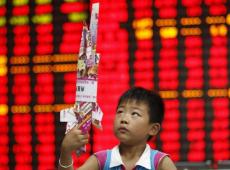
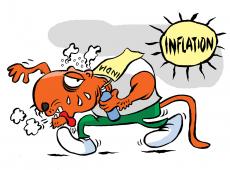
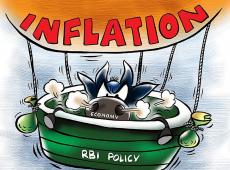
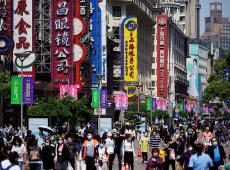



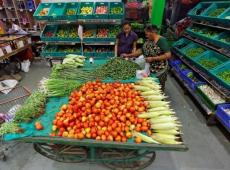
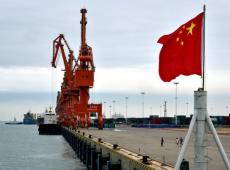
 © 2024 Rediff.com India Limited. All rights reserved.
© 2024 Rediff.com India Limited. All rights reserved.